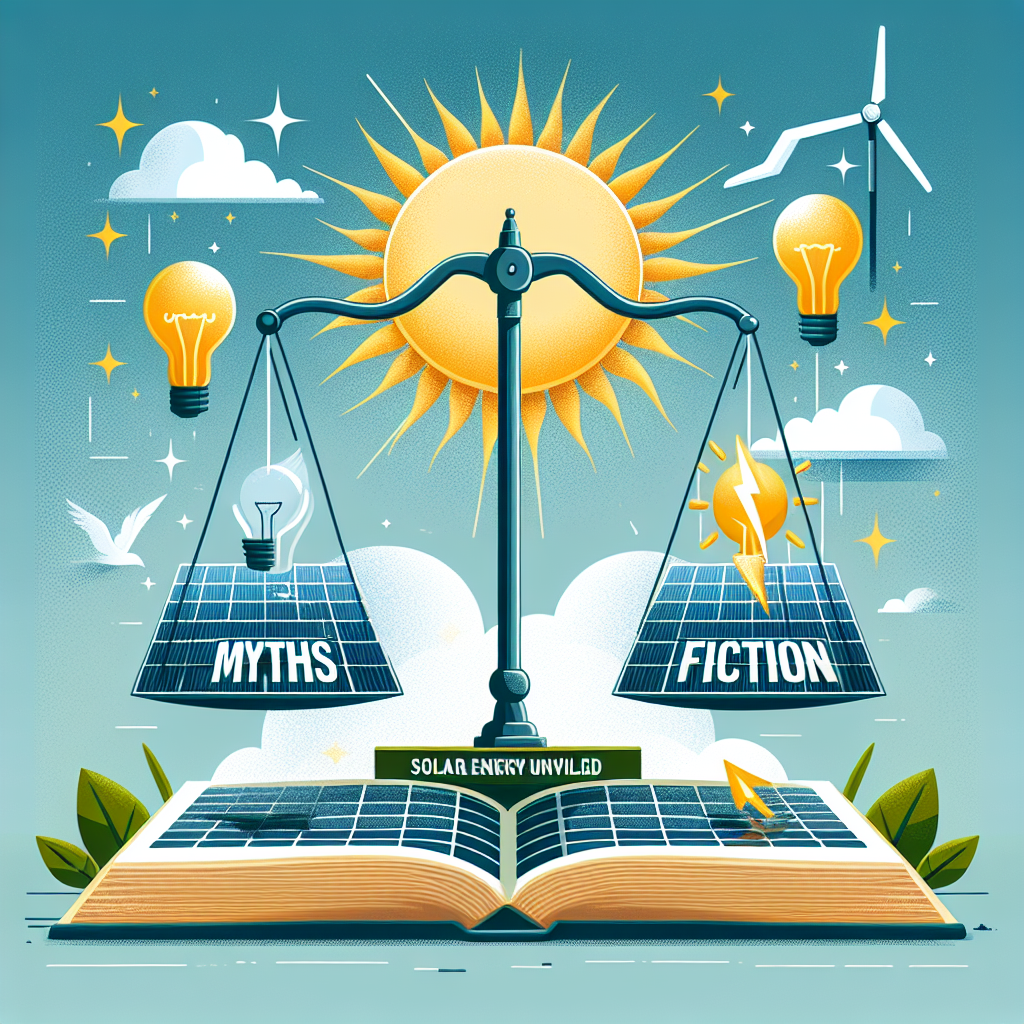As sustainable living becomes increasingly essential in combating climate change, many homeowners are exploring solar energy as a viable alternative to traditional energy sources. However, amidst its growing popularity, several myths surrounding solar energy persist, leading to confusion and, sometimes, misinformation. In this detailed article, we’ll break down common solar energy myths and present the facts, empowering you to make informed decisions about going solar.
Myth #1: Solar Energy is Too Expensive
The Reality: Long-Term Investment Potential
One of the most pervasive myths is that solar energy is prohibitively expensive. While the initial investment can be significant, it’s essential to consider solar installations as long-term investments. Many states offer incentives, tax credits, and rebates that can substantially reduce up-front costs.
Additionally, solar panels can lead to significant savings on energy bills, often recouping the initial investment within a few years. According to recent studies, homeowners can save thousands over the lifetime of their solar energy systems.
Myth #2: Solar Panels Don’t Work in Cloudy or Rainy Weather
The Reality: Efficiency in Various Conditions
Another common misconception is that solar panels are ineffective in cloudy or rainy weather. While it’s true that sunny conditions enhance solar energy production, solar panels can still generate power in diffuse sunlight.
Most solar panels are designed to operate efficiently in various weather conditions, and in fact, regions with frequent cloud cover can still utilize solar energy effectively. The efficiency loss is minimal compared to the substantial savings on energy expenses.
Myth #3: Maintenance is a Hassle
The Reality: Minimal Upkeep Required
Many potential users shy away from solar energy, believing that maintenance will be a significant burden. The truth is, solar panels require very little upkeep. Most systems come with warranties that last 20-25 years, and the only routine maintenance required is occasional cleaning and inspections.
Investing in a quality installation can further ensure minimal issues down the line. Plus, advancements in technology have made it easy for homeowners to monitor performance remotely.
Myth #4: Solar Energy is Not Reliable
The Reality: A Reliable Power Source
Critics often argue that solar energy is unreliable due to its dependence on sunlight. While it’s true that solar production isn’t constant, advancements in energy storage technology have significantly improved the reliability of solar energy.
Batteries now allow homeowners to store excess energy generated during the day to use at night or during cloudy weather. Furthermore, integrating solar energy with other renewable sources can provide a balanced and consistent power supply.
Myth #5: You Need to Live in a Sunny Area to Benefit from Solar Power
The Reality: No Geography Is Off-Limits
While sunny locales undoubtedly have an edge, homeowners in less sunny regions can still benefit greatly from solar energy. The effectiveness of solar systems depends on the quality and placement of the panels rather than just the average sunlight hours.
Many innovative solar technologies are emerging to maximize efficiency, making it more accessible for various climates.
Myth #6: Solar Energy is Environmentally Harmful
The Reality: A Greener Choice
With the increasing attention on environmental issues, some claim that the materials used in solar panels and their manufacturing processes are harmful to the environment. While it’s true that production involves energy and resources, the overall lifecycle of solar panels contributes significantly less pollution compared to fossil fuels.
Solar energy systems reduce greenhouse gas emissions and help decrease our carbon footprint, presenting a more environmentally friendly energy solution over time.
Conclusion: The Solar Energy Future
Understanding the truth about solar energy is crucial as we strive for a more sustainable future. Beyond mere myths, solar power has proven itself as a reliable, cost-effective, and environmentally conscious energy source. By dispelling misconceptions, we can encourage more homeowners to consider solar solutions, not just for their benefit but for the health of our planet.
If you’re contemplating the switch to solar energy, do your research, consult with professionals, and be part of the clean energy revolution. Embracing solar energy is not just a choice but a commitment to a brighter, cleaner future for generations to come.


